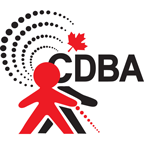Self-Regulation in Individuals with CHARGE Syndrome
Deafblind International recently published a monograph based on a series of articles published in DbI Review (January 2014 to January 2016) about various features of ‘self-regulation’ in individuals with CHARGE Syndrome. This monograph was prepared by Dr. Timothy S. Hartshorne, Professor of Psychology, Central Michigan University and Dr. Jude T. Nicholas, Clinical Neuropsychologist, attached to Haukeland University Hospital and Statped Vest center for special education in Bergen, Norway.
The material in this monograph is a joint effort of these individuals who mentored the process and co-wrote the articles, various students in the CHARGE Syndrome Research Lab at Central Michigan University (and named throughout the monograph) who worked on the papers, as well as several other international experts in the field of CHARGE Syndrome who contributed to the articles.
What is self-regulation? People are always thinking, behaving, feeling, and sensing, which together are recognized as the four dimensions (cognition, behavior, emotion, and physiology) to self-regulation. Self-regulation is described as our capacity to manage our responses to the things that happen in our lives. For individuals with CHARGE Syndrome, these various aspects of self-regulation seem to be compromised.
The monograph is organized in seven chapters. The introductory chapter provides general details about self-regulation and its various dimensions. The second chapter offers a more generalized discussion about self-regulation issues in individuals with CHARGE Syndrome. The next four chapters (3-6) detail self-regulation issues pertaining separately to cognition, behavior, emotion, and physiology.
The final chapter outlines the importance of self-regulation as an important skill for all children to develop. Self-regulation of cognition helps children set goals, follow rules, and plan out the appropriate response. Self-regulation of behavior helps children demonstrate control over their actions. Self-regulation of emotion helps children manage how they express and experience emotions. Self-regulation of physiology helps children to alter their own states and responses to meet the needs of the body.
Self-regulation is a powerful skill that has an important impact on individuals with CHARGE throughout their lives. Developing self-regulation takes time as well as the support of parents and other adults. Researchers have found that self-regulation skills in children can be developed with practice and they can also be influenced by experience. With more research and experience, the authors offer hope that the understanding of the development of self-regulation in CHARGE can be further developed and improved.

